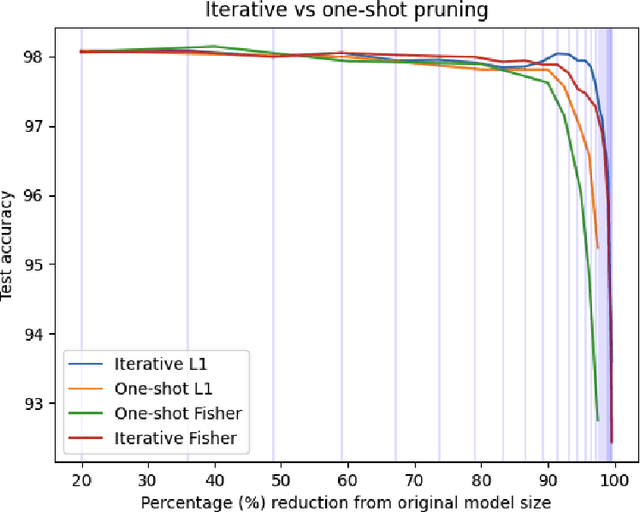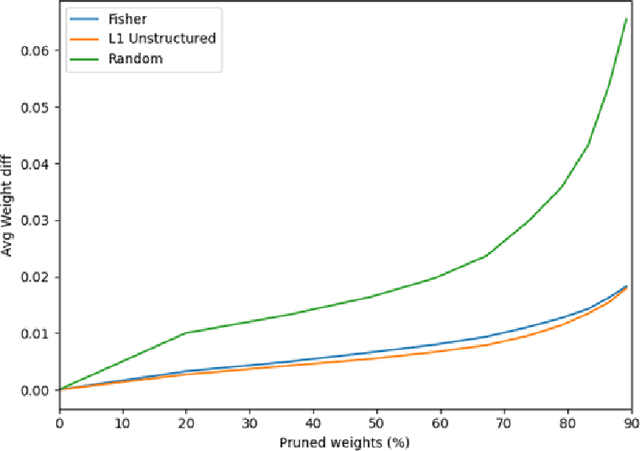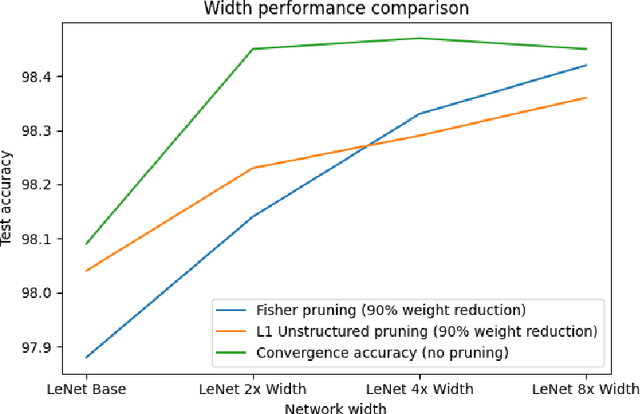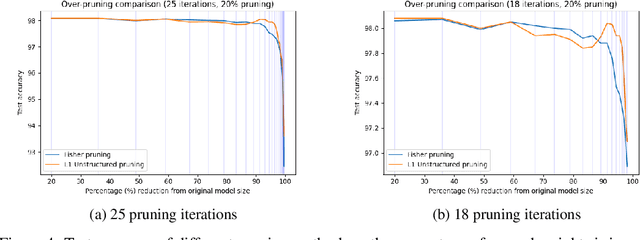Exploring the Performance of Pruning Methods in Neural Networks: An Empirical Study of the Lottery Ticket Hypothesis
Paper and Code
Mar 26, 2023



In this paper, we explore the performance of different pruning methods in the context of the lottery ticket hypothesis. We compare the performance of L1 unstructured pruning, Fisher pruning, and random pruning on different network architectures and pruning scenarios. The experiments include an evaluation of one-shot and iterative pruning, an examination of weight movement in the network during pruning, a comparison of the pruning methods on networks of varying widths, and an analysis of the performance of the methods when the network becomes very sparse. Additionally, we propose and evaluate a new method for efficient computation of Fisher pruning, known as batched Fisher pruning.
* 10 pages
 Add to Chrome
Add to Chrome Add to Firefox
Add to Firefox Add to Edge
Add to Edge